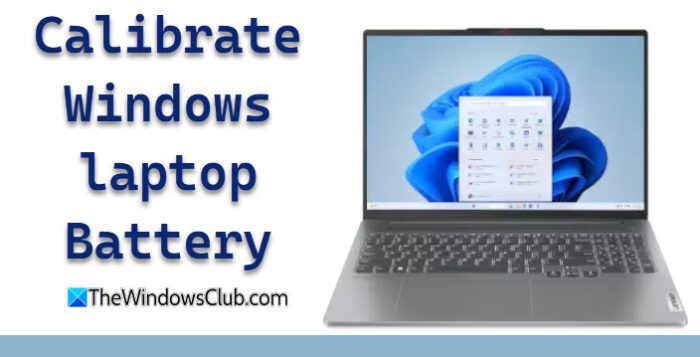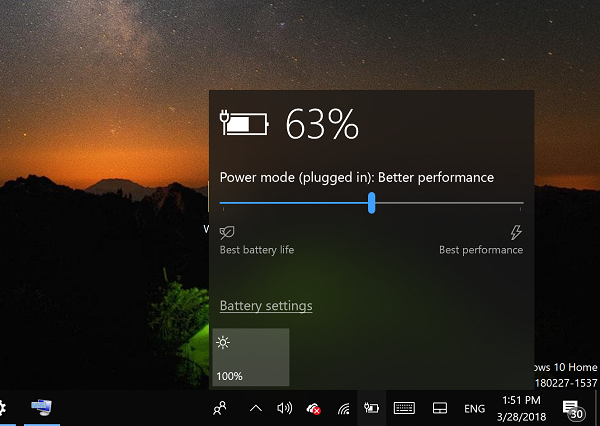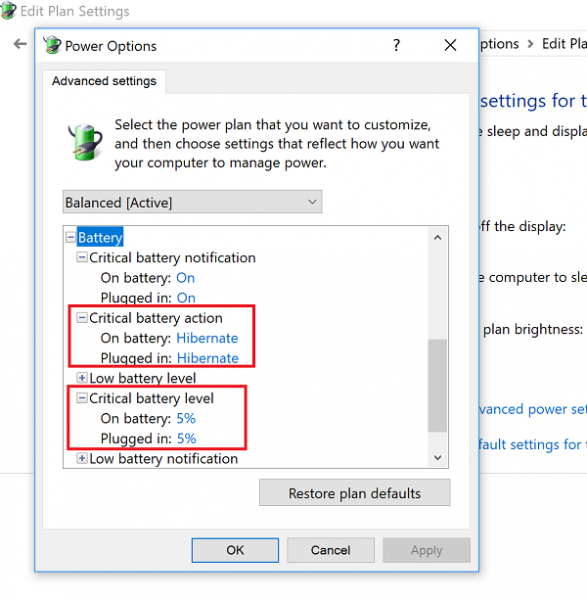The Battery life of laptops degrades over time. Everything affects its life, including usage, how often you charge it, and how long you charge it. It’s common to see its life getting shorter every month. While Windows shows you the laptop’s approximate battery life, both remaining and time to charge, the software may get confused because of uneven charge cycles over time.

That’s why it is recommended to keep charging until the same percentage of battery is left to ensure battery capacity and life. In this post, we will discuss how you can manually calibrate the Batteries of Windows laptops to increase their life.
Note: Sometimes, OEMs offer software that can help you do that. Do check with the driver software or OEM software on your Windows 11/10 laptop for the same.
Calibrate Windows laptop’s Battery
1] Open your laptop’s Power management settings in the Control Panel. Go to Settings > Power & sleep > Additional power settings > Change plan settings > Change advanced power settings.
You can also click on the Battery icon > Battery Settings and then follow from there.

2] This will open Power Options Box where individual settings for the battery can be configured.
3] Now go to Battery section of the Power options box, and then under that:
- Click on Critical Battery Action and set it to Hibernate.
- Next, click on Critical Battery Level and set it to 5% or even lower.

4] Charge your laptop’s battery to 100% and keep it plugged in for the next two hours. The only reason you need to do this is to make sure the battery is at a regular temperature which is otherwise a bit heated during charging. While you can use it, I would suggest not to unless you don’t have a choice.
5] Unplug the charger from the laptop and let it discharge until it automatically hibernates. As we configured above, this will happen exactly when there is a 5% battery left.
Tip: If you are not using your laptop while it’s unplugged, it will get into hibernate or sleep mode. Makes sure to disable sleep, screen off, and hibernate settings to never.
6] Leave your laptop for as long as possible. When there would be no battery left, the computer will shut down automatically.
7] Now plug the charger back and charge it up to 100% again.
8] Once everything is complete, Make sure to restore the default power settings to normal. Click on the battery again, go to power settings, and this time click on Power and Sleep settings to configure everything back to normal.
This will calibrate your laptop’s battery.
I suggest you perform this every two months to ensure your battery performs better over time. Remember, you don’t need to recalibrate your battery multiple times; once is more than enough!
Related reads:
- Tips to Improve battery life of Wireless Keyboard and Mouse
- Tips to Conserve Battery Power and Extend or Prolong Battery Life in Windows.
How do I reset my laptop battery?
Resetting the battery doesn’t mean you need to drain, but if the battery doesn’t seem accurate, you can try this method. First power down your laptop, and keep it as is for some time. Post that, connect the charger, and let it charge for at least an hour or so. Then restart your laptop and check if the battery reading seems to be accurate.
How do I fix my laptop battery not detected?
If the OS cannot detect the battery, then it may be faulty. However, to ensure take out the battery, turn on the laptop, and then turn it off. Then reconnect the battery and turn in on. Check if the battery is now available. If not, then you need to connect to the service center and get it checked.
Why is my laptop not showing battery icon?
It’s because the icon is hidden from the Taskbar. Go to Settings > Personalization > Taskbar corner overflow and expand it. Then locate the battery icon and toggle it on. The icon usually stays on the taskbar both when draining and when charging.
Leave a Reply